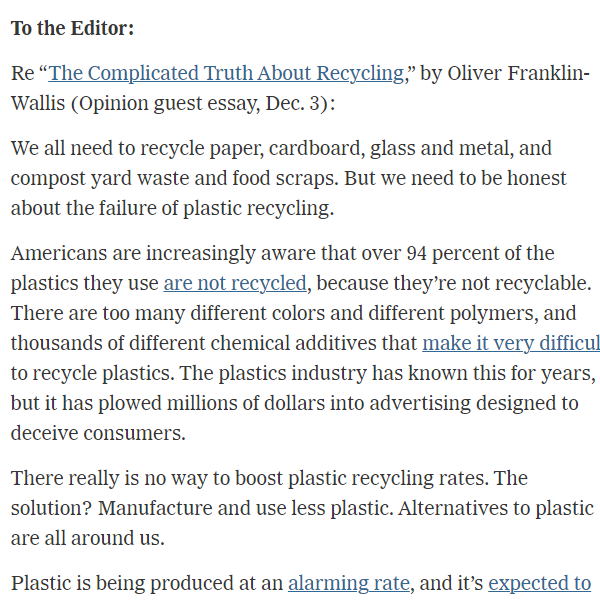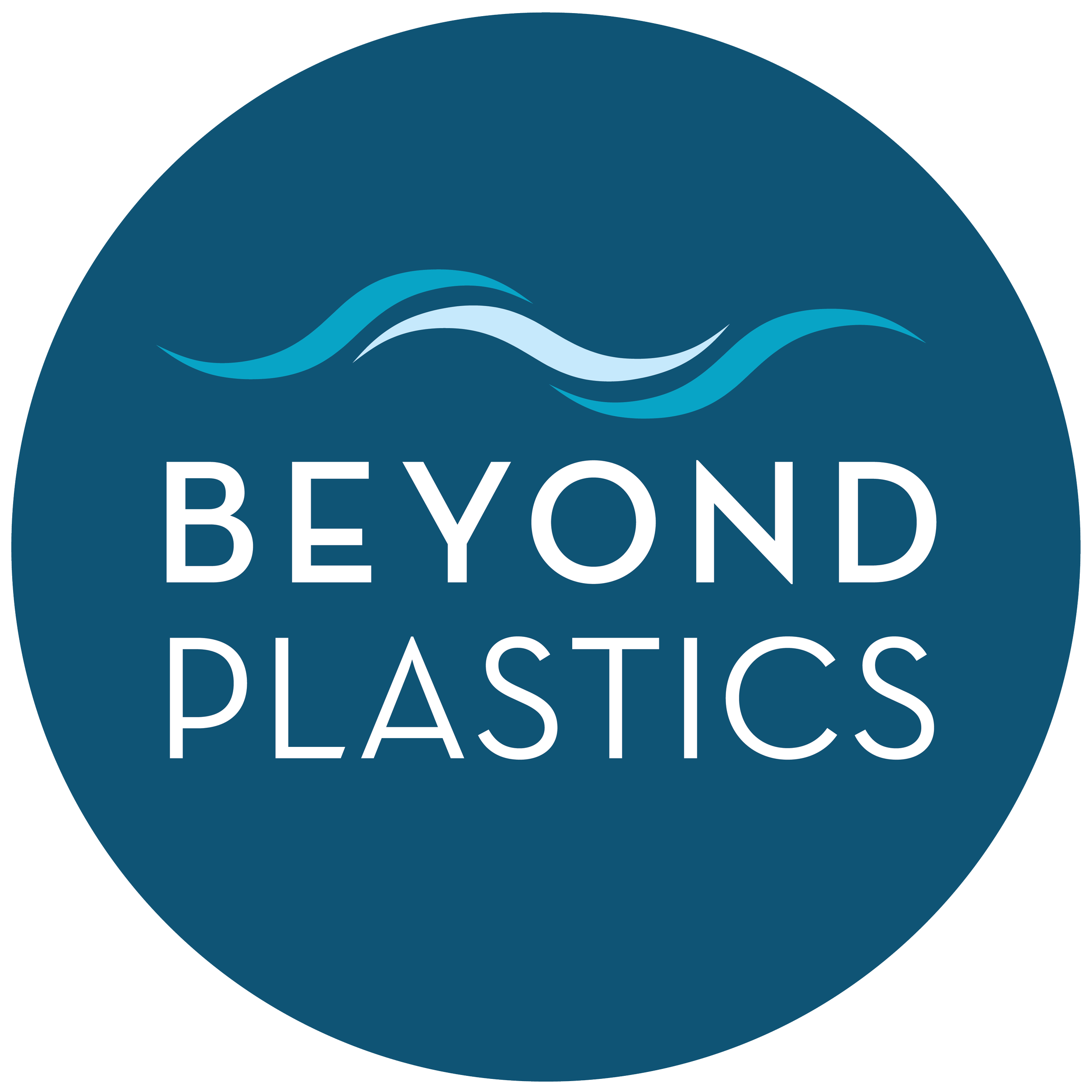
Ask NYT Climate: How Can I Slash Halloween Waste?
We’ve got tips to make the holiday more sustainable, and maybe more fun, too.

A new report looks at major companies’ efforts to address plastic waste — and finds them lacking
Melissa Valliant, communications director for the nonprofit advocacy group Beyond Plastics, said these findings are in some ways unsurprising. “Historically, goals from the largest consumer goods companies have served as pretty PR stunts that generate headlines and reassure the public,” she told Grist. She said As You Sow’s findings emphasize the need for government regulation — not just voluntary corporate commitments — to expedite companies’ progress.

The Push to Control Plastic Waste in New York: What to Know
In 2020, the plastic supermarket bag was banned in New York. It is a member of the single-use-plastic family — items that release greenhouse gases when manufactured and, once used, can take years to break down in landfills. Many more single-use plastic products could go the way of the supermarket bag should state lawmakers approve the Packaging Reduction and Recycling Infrastructure Act in early June.

Q&A: The Latest in the Battle Over Plastic Bag Bans
A decade ago, California became the first U.S. state to ban single-use plastic bags, and eleven states as well as some territories followed suit. But some 18 other states have gone in the opposite direction and even blocked local cities and towns from prohibiting single use plastic bags. Judith Enck, former EPA Regional Administrator and president of Beyond Plastics, spoke with Living on Earth about the battle over bag bans—and how to get them right.

Environmental Groups Eye a Potential Win with New York Packaging Bill
New York lawmakers appear poised to pass a new packaging reduction and recycling bill that would fundamentally reshape how single-use plastic waste is managed in the state. It’s meant to take a big bite out of 20 million New Yorkers’ contributions to the global plight of pollution from single-use plastics, which constitute about 40 percent of all plastic waste.

Aldi Eliminates Plastic Shopping Bags in All 2,300 Us Grocery Stores
The decision to eliminate plastic shopping bags will prevent almost 4,400 tons, or nearly 9 million pounds of plastic, from entering circulation annually, according to Aldi. Aldi has cloth bags available in stores for purchase and the retailer will continue to sell bags to customers who forget their own reusable bags.

Opinion: Can Recycling’s Problems Be Fixed?
Americans are increasingly aware that over 94 percent of the plastics they use are not recycled, because they’re not recyclable. There are too many different colors and different polymers, and thousands of different chemical additives that make it very difficult to recycle plastics. The plastics industry has known this for years, but it has plowed millions of dollars into advertising designed to deceive consumers.

Opinion: Recycling Bill Will Address New York's Plastics Pollution Problem
Opinion: Recycling Bill Will Address New York's Plastics Pollution Problem

Chemical Recycling Aims To Scale Fast in Effort To Manage Plastic Waste, Even as Questions Remain
Chemical recycling proponents are investing in major projects to scale up the technology. Yet lingering policy and business factors will affect the trajectory of this fast-developing recycling sector.

McKibben, Environmentalists Suggest How to Defeat Plastic Waste
According to a joint study done in May of 2022 by Beyond Plastics –a Bennington College environmental group, and The Last Beach Cleanup – a California-based nonprofit, 94-95 percent of plastics are not recycled. Environmental writer Bill McKibben, Beyond Plastics founder Judith Enck, and writer Eve O. Schaub delivered other unpleasant truths in a roundtable discussion at the Southern Vermont Arts Center on Sunday. Despite the dire prognosis for the environment, the discussion – moderated with aplomb by Joe Donahue of WAMC/Northeast Public Radio – delivered the news with energizing good humor.
The Plastic Recycling Hoax
Plastic is just about everywhere, and there’s going to be a lot more of it. The Organization for Economic Cooperation and Development expects global plastic use to triple by 2060. So what are we to do with all the waste?
Compostable Plastic Is Garbage
In most cases, compostable plastic is compostable only under very specific conditions.And a home compost pile is like the industrial version in the same way that a pickup-basketball game among preteens is the same sport as the NBA. Fruit and vegetables start to dissolve into soil within a few weeks; meat takes a little longer. Eventually, any form of compostable plastic should break down too, Frederick Michel Jr., a compost expert at Ohio State University, told me. Eventually. In one study, compostable plastic bags buried in soil for three years were so sturdy they could still hold a full load of groceries.
To Turn Off the Plastics Tap, We Must Grow the Grassroots Movement
Each year 11 million tons of plastics enter the ocean primarily from land-based sources. If we don’t work to curb plastics production, that amount will triple by 2060. At that point there will be more plastic in the ocean than fish. There will be so many dreadful statistics in our future if we allow the plastics industry to conduct business as usual, and this is what drove me to start a new organization with the central mission to end plastic pollution everywhere.
How Plastics Are Poisoning Us
Eventually, though, like Franklin-Wallis, Schaub comes to see that she’s been living a lie. Midway through her experiment, she signs up for an online course called Beyond Plastic Pollution, offered by Judith Enck, a former regional administrator for the E.P.A. Only containers labelled No. 1 (pet) and No. 2 (high-density polyethylene) get melted down with any regularity, Schaub learns, and to refashion the resulting nurdles into anything useful usually requires the addition of lots of new material. “No matter what your garbage service provider is telling you, numbers 3, 4, 6 and 7 are not getting recycled,” Schaub writes. (The italics are hers.) “Number 5 is a veeeery dubious maybe.”
How to Build a Zero-Waste Economy
These advocates and entrepreneurs are also envisioning a future free from single-use items altogether. By promoting a “circular economy” — patterns of consumption that reduce waste generation of any kind — they hope to eliminate not only single-use plastics, but also disposable products made from paper and metal. Their vision will require whole new business models and supply chains that prioritize reuse — containers and dishware and shipping packages that can be used again and again rather than discarded after just a few minutes.
New York Packaging Reduction Bill Faces Ticking Clock
New York’s long-debated and many-times-revised Packaging Reduction and Recycling Infrastructure Act is the center focus again, with days left to move to the Senate and Assembly before the legislative session ends. Proponents say the legislation would address an out-of-control waste problem while providing economic payoffs.
Trashed: The Secret Life of Plastic Recycling
ABC News' groundbreaking investigation looks into how well the U.S. plastic bag recycling system is working, and how communities are impacted by nearby landfills and incinerators.
A New Research Review Describes Plastics, ‘From Cradle to Grave,’ as a Toxics Crisis and Says the UN Must Act to Limit Production
Chemicals found in plastics cause cancer, disrupt hormones, harm human reproductive systems and lead to obesity and diabetes, the Minderoo-Monaco Commission on Human Health finds.
Once Hailed as a Solution to the Global Plastics Scourge, PureCycle May Be Teetering
The U.S. company’s planned flagship plant for recycling polypropylene in Ohio missed a construction deadline and faces a major potential bond default.
“Skip the Stuff” Laws Aim to Get Rid of Takeout Trash
Every order of takeout comes with a side of single-use plastics and each plastic fork, knife, spoon, straw and condiment packet — whether or not you wanted it or used it — ends up in the trash. New research found that 139 million metric tons of single-use plastic waste was generated in 2021— six million metric tons more single-use plastics compared to 2019. A hunger for takeout meals that skyrocketed during the pandemic contributed to the surge.

